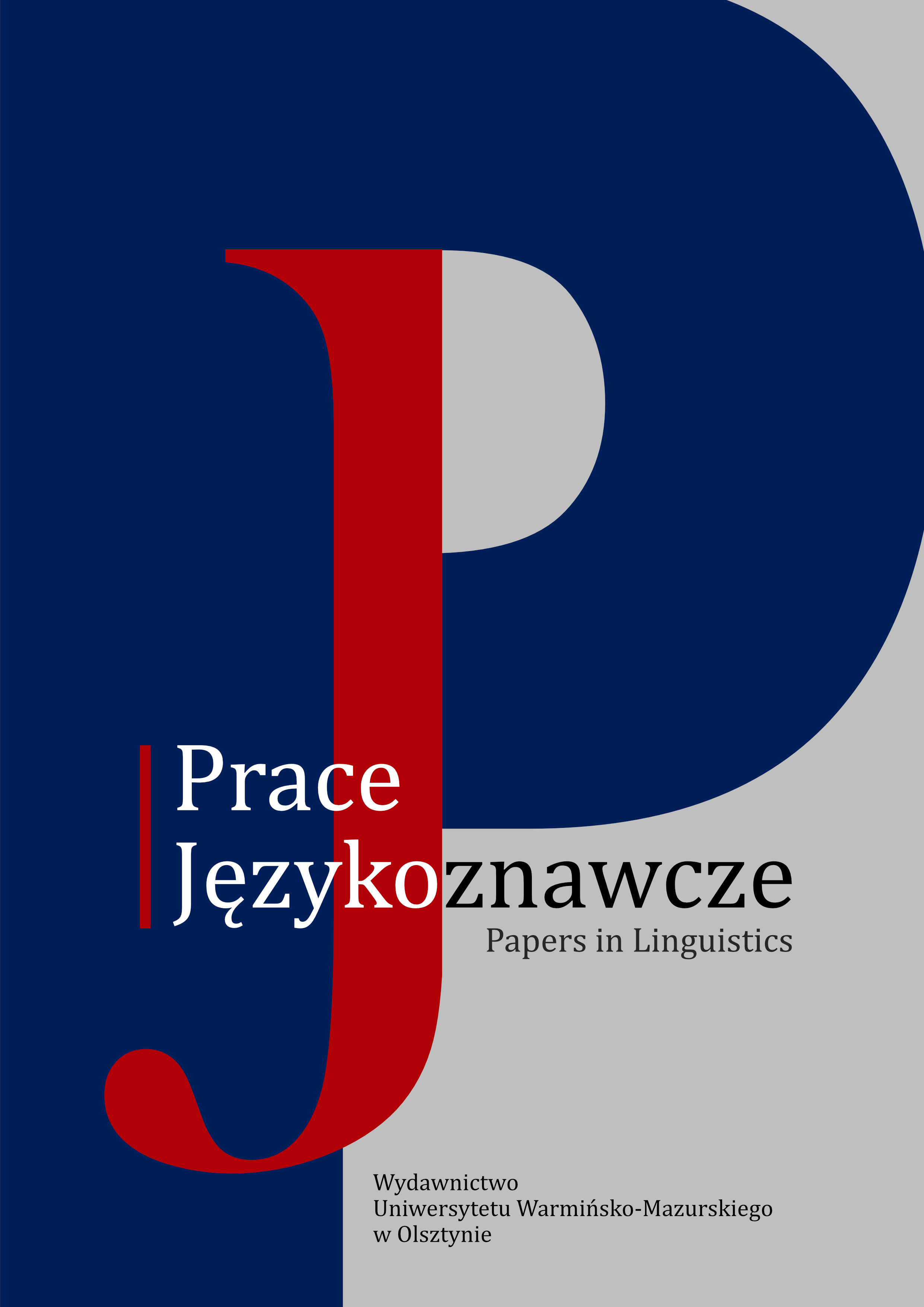Porównanie przedimka określonego w językach gockim i greckim: przypadek Ewangelii Marka
Comparison of the definite article in Gothic and Greek: a case study of the Gospel of Mark
Author(s): Ireneusz KidaSubject(s): Language studies, Language and Literature Studies, Theoretical Linguistics, Applied Linguistics
Published by: Wydawnictwo Uniwersytetu Warmińsko-Mazurskiego w Olsztynie
Keywords: Gothic; Greek; definite article; grammatical cases; a corpus-based analysis; Gospel of Mark
Summary/Abstract: This paper examines the usage of the definite article in the Gothic version of the Gospel of Mark and its parallel Greek counterpart, which served as the foundation for the Gothic translation. While the Gothic text is often considered a literal reflection of the Greek text, our analysis reveals significant differences between the two languages, particularly concerning the definite article. These disparities extend beyond mere quantity and encompass variations in grammatical cases, namely nominative, genitive, dative, and accusative. The analysis of the Gospel of Mark yields the following overall perspective. In 421 instances (equivalent to 20.83% of the total 2021 attested places of interest), Gothic mirrors Greek by employing definite articles in the same positions as Greek. Moreover, in 737 instances (equivalent to 36.46% of the total 2021 attested places of interest), Gothic aligns with Greek by omitting definite articles where Greek does not use them. Notably, out of the total 2021 instances of interest in the Gospel of Mark, Gothic omits the definite article 863 times where Greek includes it, accounting for 42.70% of the total instances. Specifically, at Gothic parts of speech (usually nouns) appearing in the nominative case, the article is omitted 241 times (27.92% out of 863), in the genitive case 117 times (13.55% out of 863), in the dative case 248 times (28.73% out of 863), and in the accusative case 257 times (29.77% out of 863). Taken together, in 1158 instances (57.29% of 2021) Gothic faithfully follows Greek, either by employing definite articles (421 instances) or by omitting them (737 instances) in corresponding positions, whereas in 863 instances (42.70% of 2021) Gothic deviates from Greek by not using definite articles in corresponding positions. To facilitate our study, we have created a manually annotated corpus of the Gothic Bible since existing corpora of Gothic do not adequately address this phenomenon. Thus, like our previous investigations, this empirical study relies on a corpus-based analysis.
Journal: Prace Językoznawcze
- Issue Year: 26/2024
- Issue No: 3
- Page Range: 149-166
- Page Count: 18
- Language: Polish

